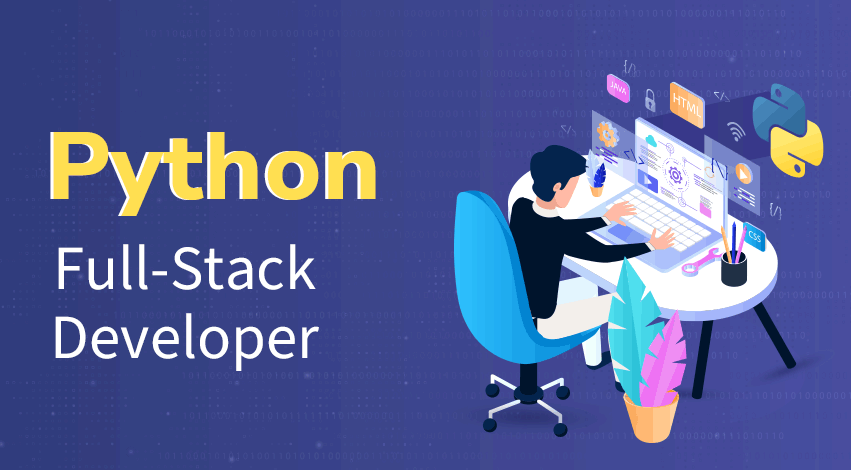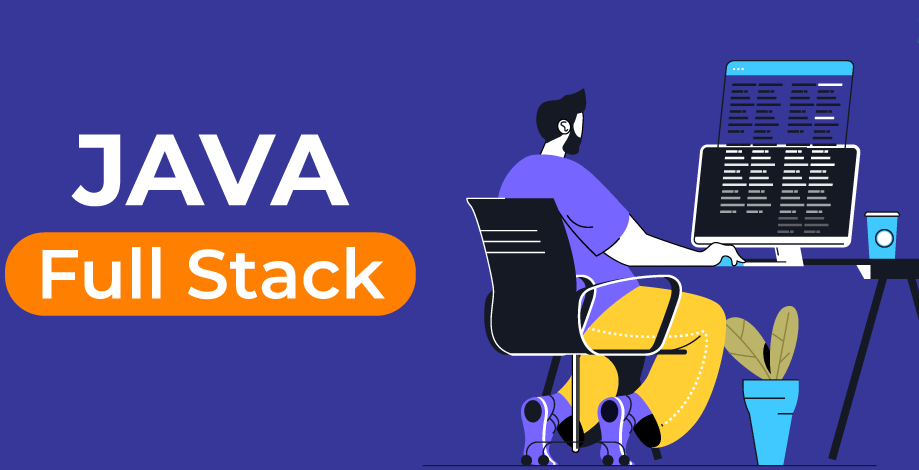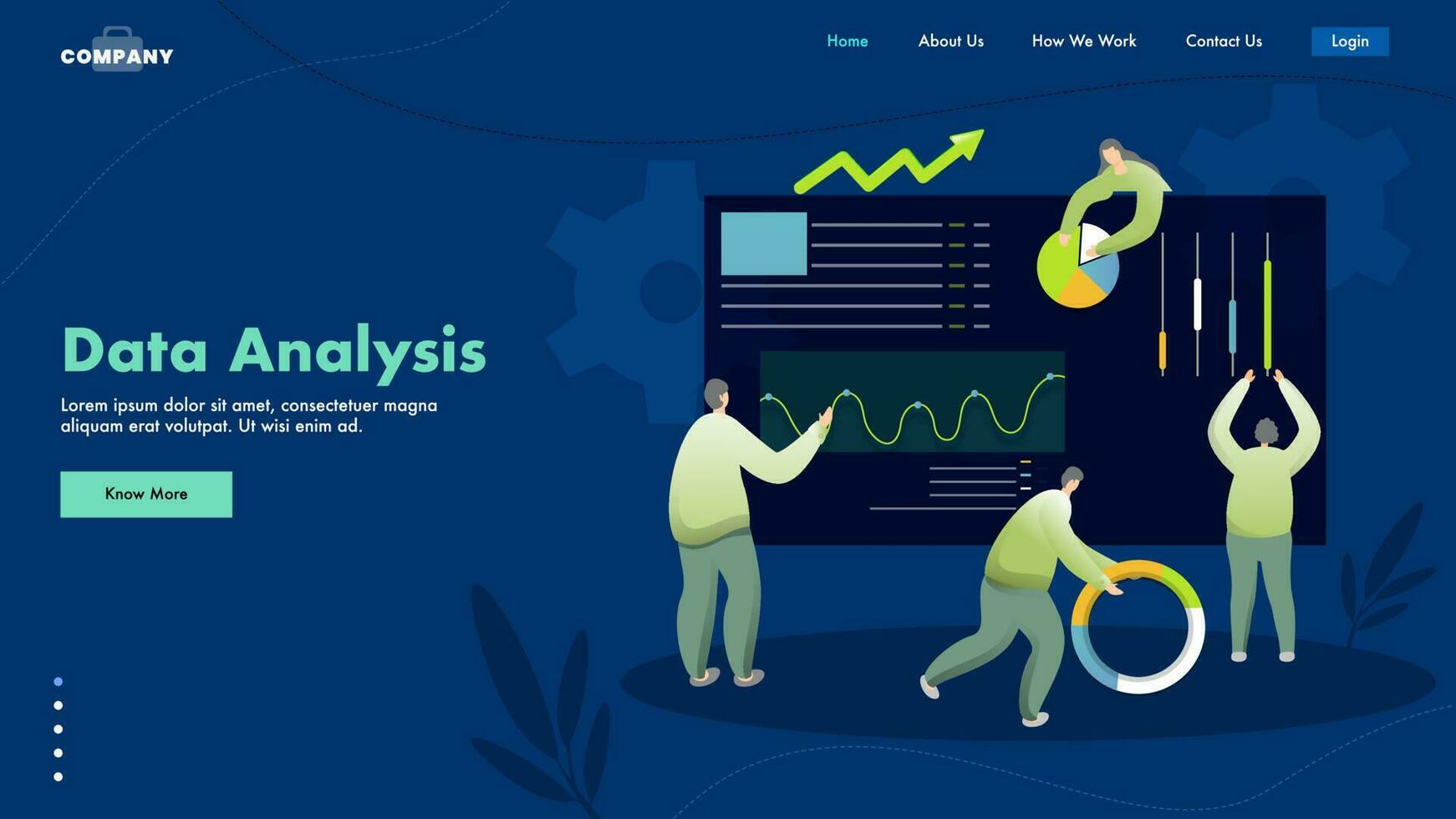CloudComputing Course
India is experiencing a massive demand for Cloud Computing professionals, and now is the perfect time to step in. Scholar Logic’s Cloud Computing Course equips you with the latest tools, technologies, and industry-relevant skills, ensuring you’re job-ready. With our extensive network of 4000+ hiring partners, we help you secure a stable and rewarding career in cloud computing.
Students Enrolled
Testimonials
Duration
40 Hours / 2 Month
15+ Hours of Immersive
Practical Training at Scholarlogic
Interactive sessions by
Working professional of ScholarLogic.
An industry-leading
Certificate by ScholarLogic
Course Description
What Does the Course Offer?
The Cloud Computing Course is designed to provide you with in-depth knowledge of cloud technologies and infrastructure. This program covers industry-leading cloud platforms and tools, including AWS, Microsoft Azure, Google Cloud, Docker, Kubernetes, DevOps, and more. Apart from theoretical learning, you will work on hands-on projects and real-world case studies, ensuring you gain practical expertise in cloud computing.
Advanced Certification Program in Cloud Computing
Unlock the potential of cloud technology with our Advanced Certification Program in Cloud Computing—a comprehensive course that equips you with the skills to deploy, manage, and secure cloud-based solutions, making you a sought-after cloud professional.
Why Choose This Program?
✅ Learn industry-relevant tools like AWS, Azure, Google Cloud, Docker, Kubernetes, and DevOps
✅ Master cloud infrastructure, virtualization, networking, and security
✅ Gain hands-on experience with real-world cloud deployment and automation
✅ Expert-led training with mentorship from industry professionals
✅ Earn a prestigious certification to boost your career in cloud computing
What is the Certification Process?
1. Enrollment & Course Access
Register for the program and gain access to learning materials, live sessions, and hands-on projects.
2. Learning & Hands-on Projects
Complete structured learning covering key topics such as:
Cloud Architecture & Deployment (AWS, Azure, GCP)
Virtualization & Containerization (Docker, Kubernetes)
Cloud Security & Compliance
DevOps & Automation (CI/CD, Terraform)
Serverless Computing & Cloud Databases
Networking & Cloud Storage Solutions
Work on real-world cloud projects to apply the concepts learned.
3. Assessments & Quizzes
Participate in quizzes, assignments, and coding challenges to test and reinforce your knowledge.
4. Capstone Project
Complete a final capstone project, implementing an end-to-end cloud solution using AWS, Azure, or Google Cloud.
5. Certification Exam
Some programs may include a final assessment or certification exam to validate your expertise.
6. Certification Awarded
Upon successful completion of the coursework, projects, and assessments, you will receive a recognized certification in Cloud Computing.
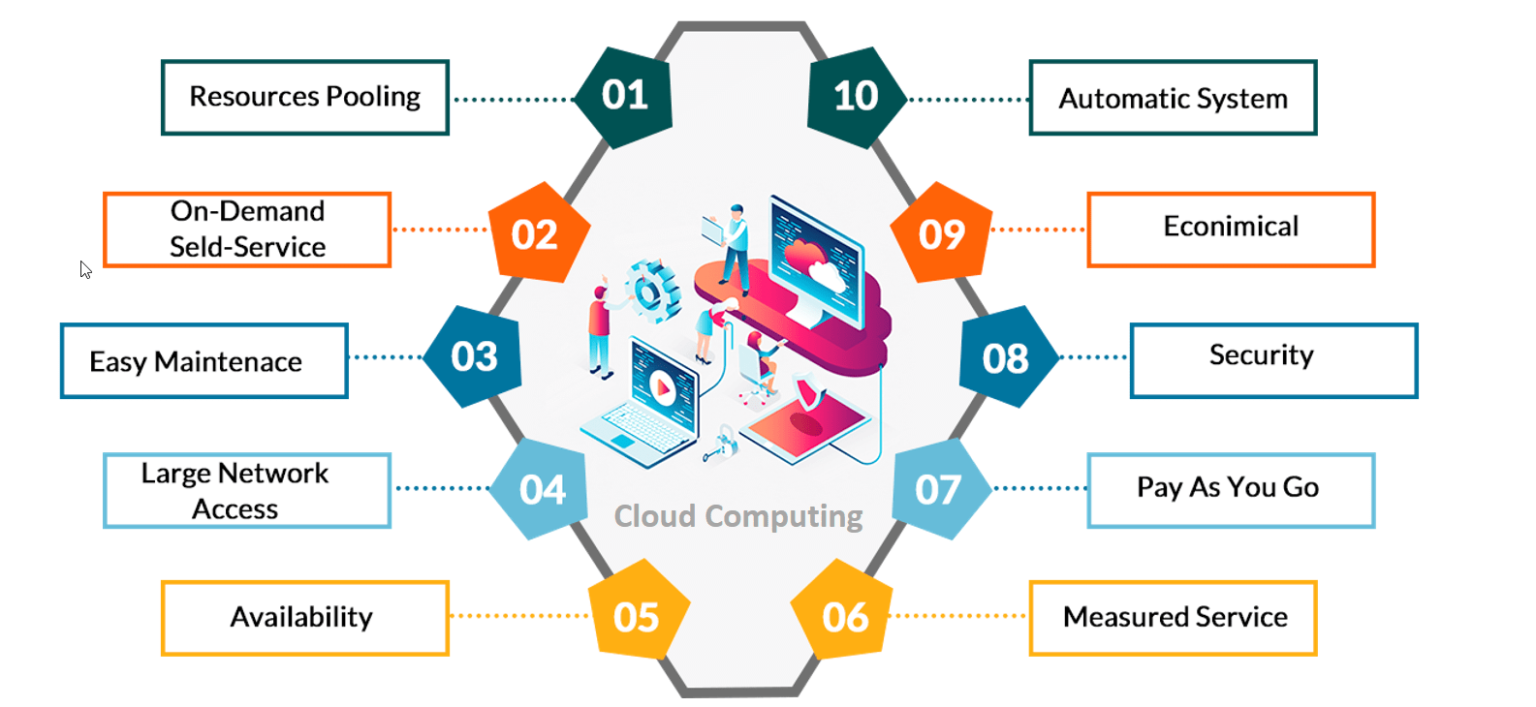
Program Highlights

Top-Notch Faculty
Trainers at Scholarlogic are passionate about training, and carry 10+ years of industry experience.
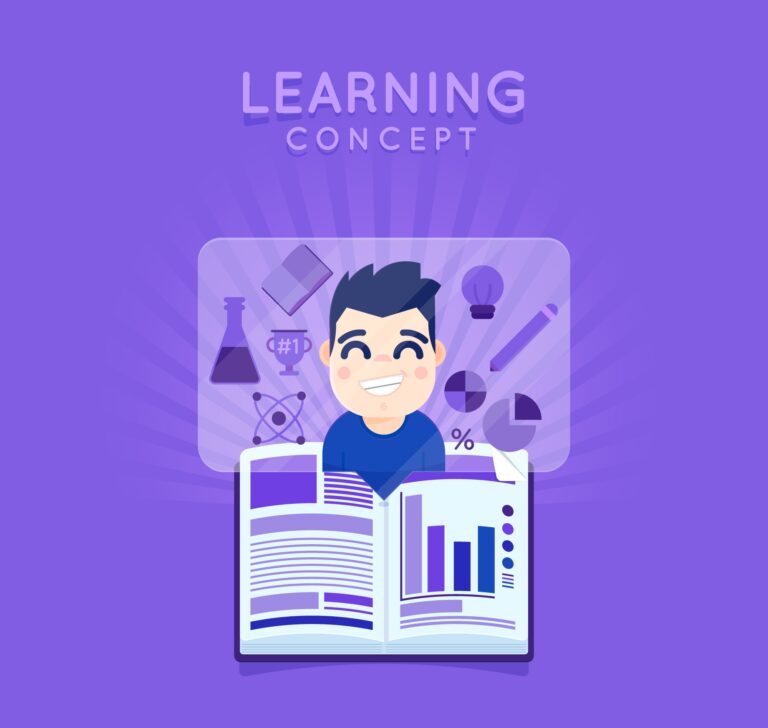
Exhaustive Course Curriculum
Our industry-relevant course curriculum is tailored to provide practical exposure with the theory.

Real-life Projects and Bootcamps
Learners will work on real-life data analytics scenarios from various domains to get application knowledge.

Job Readiness Program
Intensive interview preparation from Day 1 to prepare candidates for interviews with our network of 2000+ hiring partners.
Skills Covered

Linux

ApI
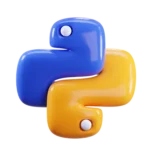
Programming Languages
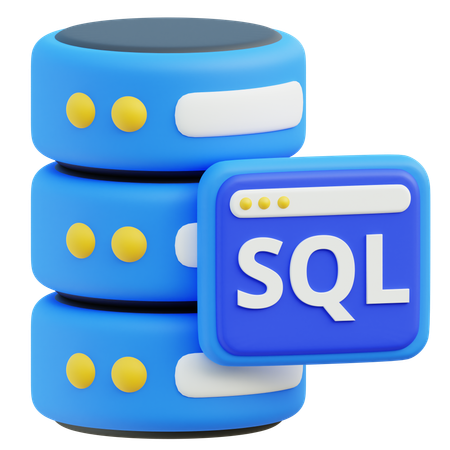
Database Management skills

Information Security
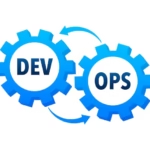
Devops
Tools & Technologies Covered

Cloud Service Providers

Amazon Web Services (AWS)

Cloud Networking & Security
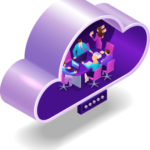
Multi-Cloud & Hybrid Cloud Management
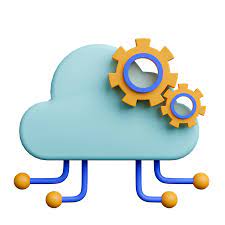
Configuration Management

Virtualization & Containerization

Linux

ApI

Programming Languages
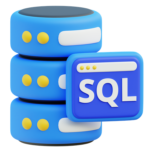
Database Management skills

Information Security

Devops
Cloud Computing Project
Life Cycle
Module 1- About Cloud Technology
- Cloud Computing Technology & its Concepts
- Comparison between On-Premise & Cloud Infrastructure
- Various Advantages of Cloud Technology
- Types of Cloud Services being offered
- Leading Cloud Services providers in the market
- Comparison between Cloud Service Providers
Module 2 -Introduction To AWS
- Evolution
- Chronology & Events
- Global Clients for AWS, Azure & GCP
- Setting up Free Tire Accounts on Respective Cloud Platforms
- Pricing Models offered
Module 3- AWS Cloud Architecture & Infrastructure Details
- About Region and Availability Zone
- About Edge Locations
- Cloud Legal & Compliance Overview of AWS
Module 4 -AWS Elastic Compute Cloud Services(EC2) - EC2
- EC2 Essentials
- Launching a new EC2 Instance
- Types of instances offered by AWS in EC2
- About Amazon Machine Image
- EBS Volumes & Use Cases
- EBS Snapshot and Scenarios
- What is an Elastic IP
- AWS Pricing & Calculating
Module 5 -Amazon Web Services Networking & Content Delivery Services
- Introduction to AWS Cloud Networking services
- Over View of Virtual Private Cloud
- Creation of Public & Private Subnets
- Configuring Internet Gateway & Uses
- About Network Address Translation (NAT) Gateway
- Connecting two VPCs using VPC Peering
- About Cloud Front and Advantages
- Hosting Domain using Route 53
Module 6 -AWS Simple Storage Services(S3)
- Creating S3 Bucket.
- Types of Storages Classes in S3 Bucket
- Versioning & Cross Region Replication
- Static Website Hosting using S3 Bucket
- About AWS Elastic File System
- AWS Glacier
Module 7- AWS Relational Database Service(RDS)
- What is Relational Database Service
- Setting up RDS Instance
- About Amazon Dynamo DB
Module 8- Database Services
- RDS- Relational Database Services
- DynamodB
- Redshift
- Features of Database Service
Module 9- IAM & Monitoring services
- What is Identity and Access Management (IAM)
- How to Creation of Users & Groups in IAM
- Providing Authorisation & Authentication for Users & Groups
- Working with Multi Factor Authentication using MFA Device
Module 10-AWS Monitoring & Notification Services
- AWS Cloud Watch
- Simple Notification Service (SNS)
- Amazon Simple Queue Service (SQS)
- Decision tree and random forest models
Module -AWS Monitoring & Notification Services
- Decision tree and random forest models
Linux
Module 1 - Get Started With Red Hat Enterprise Linux
Introduction to RHEL
Understanding the Linux operating system
Logging into the system
Navigating the file system
Basic shell commands
Understanding the root user and sudo
Module 2 - Access The Command Line
Opening a terminal
Basic shell commands (e.g.,
ls,cd,pwd)Command syntax and options
Using command history
Executing commands as another user with
suandsudo
Module 3- Manage Files From The Command Line
Creating, copying, moving, and deleting files
Working with directories
File globbing and wildcards
File permissions and ownership
Using
findandlocateto search for filesArchiving and compressing files (e.g.,
tar,gzip)
Module 4- Get Help In Red Hat Enterprise Linux
Using
manpagesAccessing
infodocumentationUsing
--helpoption with commandsRed Hat documentation and online resources
Understanding
/usr/share/docdirectory
Module 5-Create, View, And Edit Text Files
Using text editors:
vim,nanoViewing files with
cat,less,more,head,tailRedirecting output (
>,>>,<)Piping commands (
|)Searching within files using
grep
Module 6- Manage Local Users And Groups
Creating and deleting users (
useradd,userdel)Modifying user properties (
usermod,passwd)Creating and managing groups (
groupadd,groupdel)Understanding
/etc/passwd,/etc/shadow, and/etc/groupSetting password policies
Module 7-Control Access To Files
- Understanding file permissions (read, write, execute)
Changing permissions with
chmodChanging ownership with
chownandchgrpSpecial permissions: SUID, SGID, and sticky bit
Access Control Lists (ACLs)
Module 8-Monitor And Manage Linux Processes
- Viewing processes with
ps,top,htop Managing foreground and background processes
Killing processes with
kill,pkill,killallUnderstanding process states
Using
niceandreniceto adjust process priority
Module 9-Control Services And Daemons
- Understanding systemd and service management
Starting, stopping, and restarting services (
systemctl)Enabling and disabling services at boot
Viewing service status and logs
Managing targets and runlevels
Module 10- Configure And Secure SSH
- Understanding systemd and service management
Starting, stopping, and restarting services (
systemctl)Enabling and disabling services at boot
Viewing service status and logs
Managing targets and runlevels
Module 11- Analyze And Store Logs
Understanding the syslog service
Viewing logs with
journalctlManaging log files in
/var/logRotating logs with
logrotateFiltering and searching logs
Module 12- Manage Networking
Configuring network interfaces (
nmcli,nmtui)Understanding IP addressing and subnetting
Testing network connectivity (
ping,traceroute)Configuring hostname and DNS
Managing firewalls with
firewalld
Certificate Provided By ScholarLogic

Learning Path

Why ScholarLogic?

Experienced Faculty

Work Hands-on with 2+ Real Life Projects

Dedicated Placement cell for 100% Placement Assistance

Dedicated Case studies support team

24/7 Trainer Whatsapp Support

Lifetime eLearning access
Course Curriculum
Topics to be covered
- Linux
- Api
- Information Security
- Devops
Linux
Module 1: Introduction to Linux for Cloud Computing
What is Linux? Why is it important for Cloud Computing?
Linux Distributions (Ubuntu, CentOS, RHEL, Debian, Amazon Linux)
Cloud-based Linux vs. Traditional Linux
Installing and Setting Up Linux in Cloud (AWS, Azure, GCP)
Module 2: Linux Command Line & Shell Scripting
Basic Linux Commands (ls, cd, cp, mv, rm, cat, grep, find)
File and Directory Permissions (chmod, chown)
User and Group Management
Process Management (ps, top, kill, nice)
Bash Scripting for Automation
Module 3: Linux System Administration in Cloud
Managing Linux Instances on AWS (EC2), Azure (VMs), GCP (Compute Engine)
Package Management (apt, yum, dnf, snap)
File Systems & Disk Management (ext4, XFS, LVM)
Configuring Network and Firewall (iptables, ufw, firewalld)
Logging and System Monitoring (journalctl, dmesg, syslog)
Module 4: Linux Security in Cloud Environments
Secure SSH Access & Key Management
SELinux & AppArmor for Cloud Security
Implementing Firewalls and Network Security Groups (NSG)
Security Hardening Best Practices
Cloud Identity & Access Management (IAM)
Module 5: Linux Automation & DevOps Tools
Infrastructure as Code (IaC) with Terraform and Ansible
Automating Linux Configuration with Cloud-Init
Using Systemd for Service Management
Log Analysis with ELK Stack (Elasticsearch, Logstash, Kibana)
Cloud DevOps Tools (Jenkins, Docker, Kubernetes)
Module 6: Linux Storage & Databases in Cloud
Cloud Storage Services (AWS S3, Azure Blob, Google Cloud Storage)
Mounting and Managing Cloud Disks (EBS, Azure Disks, Persistent Disks)
Managing Databases in Cloud (MySQL, PostgreSQL, MongoDB)
Backup & Disaster Recovery Strategies
Module 7: Linux Performance Tuning & Troubleshooting
Analyzing System Performance (htop, iostat, vmstat)
Kernel Optimization for Cloud Workloads
Debugging Cloud-Based Linux Issues
Log File Analysis and Troubleshooting
Module 8: Linux in Multi-Cloud and Hybrid Cloud
Managing Linux Workloads in Multi-Cloud Environments
Hybrid Cloud Linux Administration
Cloud Networking & VPNs (AWS VPC, Azure Virtual Network)
Migrating Linux Workloads to Cloud
Module 9: Hands-on Projects & Case Studies
Setting up a Linux Web Server on AWS/GCP/Azure
Automating Server Provisioning with Terraform & Ansible
Configuring Secure Linux Access for Cloud-Based Workloads
Performance Monitoring and Optimization in Cloud Linux Environments
Deploying a Kubernetes Cluster on Linux Servers
Api
Module 1: Introduction to Cloud APIs
What is an API?
Role of APIs in Cloud Computing
RESTful APIs vs. SOAP APIs
JSON vs. XML in Cloud APIs
Authentication Methods (API Keys, OAuth, JWT)
API Rate Limiting and Throttling
Module 2: Cloud API Service Providers Overview
AWS APIs (EC2, S3, Lambda, IAM)
Google Cloud APIs (Compute Engine, Storage, BigQuery)
Microsoft Azure APIs (Virtual Machines, Storage, Identity)
IBM Cloud and Oracle Cloud APIs
Comparing Cloud API Services
Module 3: API Development & Integration
API Request and Response Cycle
REST API Methods (GET, POST, PUT, DELETE)
Using Postman for API Testing
API Documentation (Swagger, OpenAPI)
Best Practices for API Developmen
Module 4: Authentication and Security in Cloud APIs
OAuth 2.0 and OpenID Connect
API Gateway Security (AWS API Gateway, Azure API Management)
Token-Based Authentication (JWT, API Keys)
Role-Based Access Control (RBAC) in APIs
CORS Policy and API Security Best Practices
Module 5: AWS APIs in Depth
AWS SDK and CLI for API Calls
Working with AWS EC2 API
S3 API for Object Storage Management
AWS Lambda API for Serverless Computing
IAM API for User and Role Management
Module 6: Google Cloud APIs in Depth
Google Cloud SDK and REST APIs
Compute Engine API for VM Management
Google Cloud Storage API for Data Handling
BigQuery API for Data Analysis
Google Cloud Pub/Sub API for Messaging
Module 7: Microsoft Azure APIs in Depth
Azure REST API and SDKs
Azure Virtual Machines API
Azure Blob Storage API
Azure Identity API for Authentication
Azure Functions API for Serverless Execution
Module 8: API Management and Monitoring
API Gateway Services (AWS API Gateway, Azure API Management, Apigee)
Rate Limiting, Quotas, and Caching
API Monitoring and Logging (CloudWatch, Azure Monitor)
Troubleshooting API Errors
Module 9: Cloud API Automation & DevOps
Infrastructure as Code (Terraform, CloudFormation)
CI/CD Pipelines for API Deployment
Automating API Calls with Python, Node.js
API Performance Testing
Module 10: Case Studies and Hands-On Projects
Building a REST API using AWS Lambda and API Gateway
Deploying a Cloud-Native App with Google Cloud APIs
Secure Authentication with OAuth 2.0 and Cloud APIs
Real-World API Use Cases in Cloud Computing
Information Security
Module 1: Introduction to Cloud Security
Basics of Cloud Computing and Security Challenges
Shared Responsibility Model in Cloud Security
Security Risks in Cloud Environments
Cloud Security vs. Traditional IT Security
Compliance and Regulatory Concerns (GDPR, HIPAA, ISO 27001, SOC 2)
Module 2: Cloud Security Architectures
Cloud Security Frameworks (NIST, CSA)
Security Models for Public, Private, Hybrid Clouds
Cloud Security Posture Management (CSPM)
Zero Trust Security Model in Cloud
Module 3: Identity and Access Management (IAM)
Authentication & Authorization in Cloud
Role-Based Access Control (RBAC) & Attribute-Based Access Control (ABAC)
Multi-Factor Authentication (MFA)
Identity Federation and Single Sign-On (SSO)
Cloud IAM Services (AWS IAM, Azure AD, Google Cloud IAM)
Module 4: Data Security in Cloud
Data Encryption Techniques (AES, RSA)
Data Masking, Tokenization, and Obfuscation
Cloud Storage Security (S3, Blob, Google Cloud Storage)
Secure Data Sharing in Cloud
Data Loss Prevention (DLP) Strategies
Module 5: Network Security in Cloud Computing
Virtual Private Cloud (VPC) Security
Firewalls and Intrusion Detection Systems (IDS/IPS)
Secure Network Segmentation
Distributed Denial of Service (DDoS) Protection
Cloud-Based Web Application Firewalls (WAF)
Module 6: Security Threats and Vulnerabilities in Cloud
Common Cloud Threats (Misconfiguration, Insider Threats)
Malware, Ransomware, and Phishing in Cloud
API Security Vulnerabilities and Protection
Cloud Penetration Testing and Ethical Hacking
Module 7: Cloud Security Monitoring & Incident Response
Cloud Security Information and Event Management (SIEM)
Log Management and Threat Intelligence
Security Automation and Orchestration (SOAR)
Incident Detection, Response, and Recovery in Cloud
Forensic Investigation in Cloud
Module 8: Compliance and Legal Issues in Cloud Security
Cloud Security Compliance Standards (SOC 2, PCI DSS)
Data Privacy Laws (GDPR, CCPA)
Auditing and Security Assessments in Cloud
Legal and Ethical Concerns in Cloud Security
Module 9: Cloud Security Best Practices and DevSecOps
Secure DevOps (DevSecOps) in Cloud Environments
Security as Code (IaC Security)
Secure Software Development Lifecycle (SDLC)
Continuous Security Monitoring and Policy Enforcement
Module 10: Case Studies and Hands-on Projects
Implementing Cloud IAM and MFA Security
Securely Configuring Cloud Storage Services
Deploying Web Apps with Cloud WAF and Security Groups
Performing Cloud Security Audits and Compliance Checks
Real-world Incident Response in Cloud Security
Devops
Module 1: Introduction to Cloud DevOps
What is DevOps? DevOps vs Traditional IT
Role of DevOps in Cloud Computing
DevOps Lifecycle (Plan, Develop, Build, Test, Release, Deploy, Operate, Monitor)
Cloud-Native DevOps Practices
Key Cloud DevOps Tools Overview (Terraform, Kubernetes, Jenkins, Docker)
Module 2: Cloud Infrastructure and Automation
Infrastructure as Code (IaC) – Concept & Benefits
Introduction to Terraform, CloudFormation, ARM Templates
Automating Infrastructure Deployment (AWS, Azure, GCP)
Configuration Management Tools (Ansible, Puppet, Chef)
Serverless Computing and Automation (AWS Lambda, Azure Functions)
Module 3: Continuous Integration & Continuous Deployment (CI/CD) in Cloud
What is CI/CD? CI/CD Pipeline Overview
CI/CD in AWS (CodePipeline, CodeDeploy, CodeBuild)
CI/CD in Azure (Azure DevOps, GitHub Actions)
CI/CD in Google Cloud (Cloud Build, Cloud Deploy)
Automated Testing in CI/CD Pipelines
Canary and Blue-Green Deployments
Module 4: Containerization & Kubernetes in Cloud
Introduction to Containers (Docker)
Kubernetes Architecture and Components
Deploying Kubernetes Clusters in AWS (EKS), Azure (AKS), GCP (GKE)
Helm Charts and Kubernetes Configurations
Kubernetes Networking and Service Mesh (Istio, Linkerd)
Module 5: Cloud Security in DevOps (DevSecOps)
Introduction to DevSecOps: Security in CI/CD
Cloud Identity & Access Management (IAM)
Secrets Management (AWS Secrets Manager, HashiCorp Vault)
Security Scanning Tools (Snyk, Trivy)
Compliance as Code (Policy Enforcement with Open Policy Agent)
Module 6: Monitoring, Logging, and Performance Optimization
Cloud Monitoring Tools: AWS CloudWatch, Azure Monitor, Google Cloud Operations Suite
Log Management and Analysis (ELK Stack, Prometheus, Grafana)
Observability in Cloud DevOps
Performance Testing & Optimization
Incident Response and Disaster Recovery in DevOps
Module 7: Site Reliability Engineering (SRE) & Cloud Operations
Introduction to SRE in Cloud Computing
SLAs, SLOs, SLIs – Measuring Reliability
Auto-scaling and Load Balancing (AWS ALB, Azure Load Balancer, GCP Load Balancer)
Incident Management and Root Cause Analysis
Chaos Engineering for Fault Tolerance
Module 8: Multi-Cloud and Hybrid Cloud DevOps
Introduction to Multi-Cloud Strategies
Managing Hybrid Cloud Workloads with DevOps
CI/CD Pipelines for Multi-Cloud Deployment
Cloud Networking in Hybrid Environments
Cost Optimization Strategies in Multi-Cloud
Module 9: Hands-on Projects & Case Studies
Automating Cloud Infrastructure with Terraform & Ansible
Building a CI/CD Pipeline for a Cloud-Native Application
Deploying and Managing Kubernetes in AWS/GCP/Azure
Implementing Cloud Security in DevOps Pipelines (DevSecOps)
Monitoring and Performance Tuning in a Cloud-Based DevOps Environment
Contact Our Team of Experts
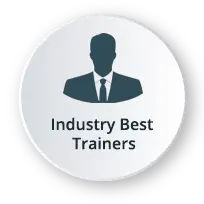
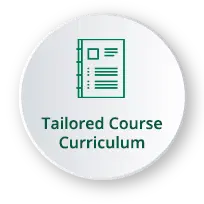
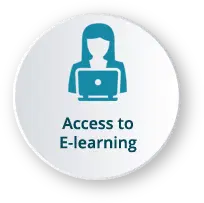
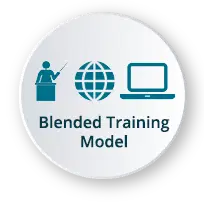
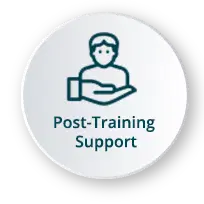
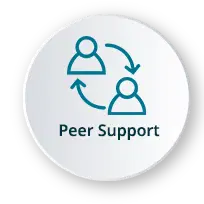
What Our Students Have To Say

Best software training institute in Bangalore with best teaching from experts, I love way of teaching and behavior with students
Narayana Swamy
Student
I wanted to learn Salesforce courses in Bangalore offline. I was searching for best institutes for months... Since I'm working in a MNC in Oracle support job, I want to change into IT. When enquired, they said they have early morning and evening batches for working professionals.. So I joined here... They teach practically. With that knowledge I applied for jobs with 2 years experience. Now I'm working at kasmo technology company. Thanks 🙏 highly recommended
David S
Student
I enrolled in the Data Analytics course at ScholarLogic, and I’m very satisfied with the experience. The course was well-structured, and the instructors were always available to clarify doubts. The practical assignments were very helpful, and the placement assistance helped me find a job in a reputable company.
Dipen Bhangale
Student
ScholarLogic provided excellent training. The instructors were knowledgeable and always ready to help. The hands-on labs were particularly beneficial in understanding real-world scenarios. Highly recommend their courses.
Harshitha Vasanth
Student
The Python Full Stack course at ScholarLogic was top-notch. The trainers were well-versed in the subject matter and provided a clear understanding of both front-end and back-end development. The projects were challenging but prepared me well for my job, which I secured through their excellent placement assistance.
Rohit Gurjar
Student
The Front-End Development course at ScholarLogic was outstanding. The curriculum was up-to-date with the latest technologies, and the trainers made learning enjoyable. The projects were challenging but rewarding and the placement support was very effective.
Jidnyesh Sachin Patil
Student
ScholarLogic’s DevOps course provided an excellent foundation for my career. The trainers were experts in the field, and the course content was up-to-date and relevant. The placement support was effective, and I was able to secure a job shortly after completing the course.
Golu Tekade
Student
Scholarlogic is best for learning it field and teaching was excellent and I have learned Devops and this institute helpful for students ,it is overall good experience for me, the way of teaching and solving doubts and guiding me was good😊
christy
Student
The way of teaching is so good for me the teaching is so clean and neat easily understood. They help me clear all my doubts anyway it is a good experience in my life Like
Brijesh
StudentI recently completed a course at ScholarLogic Training Institute, and I must say, it exceeded all my expectations. From start to finish, the experience was nothing short of exceptional.
Dayanand
Student
"Fantastic coaching classes! Great instructors, and personalized attention. Highly recommend!" Thank you Scholarlogic
Shrivathsa M
Student
I have completed my cloud computing course recently I had good experience in scholar logic and the trainers are very friendly.
Pandurang Hundekar
StudentFAQs
What Are the Prerequisities For this Cloud Computing course?
- As such, there is no prerequisite for undertaking this training. However, it is highly desirable if you possess the following skills sets.
- Analytical expertise
- Good critical thinking and problem-solving skills
- Communication Skills
What Are The Career Opportunities For Cloud Computing Professionals?
Cloud computing professionals have numerous career opportunities as businesses increasingly migrate to cloud-based solutions. With expertise in cloud platforms like AWS, Azure, and Google Cloud, professionals can pursue various roles across different industries. Here are some key career opportunities:
- Cloud Engineer
- Cloud Architect
- Cloud Security Engineer
- DevOps Engineer
- Cloud Data Engineer
How Many Batches Can I Attend, If Enrolled For Training?
- Scholar Logic offers a blended model of learning. In this model, you can attend classroom, instructor-led live online and e-learning (recorded sessions) with a single enrolment. A combination of these 3 will produce a synergistic impact on the learning. You can attend multiple Instructor-led live online sessions for one year from different trainers at no additional cost with the all new and exclusive JUMBO PASS.
Is This A Live Training Or Recorded Sessions?
- It is a live instructor-led interactive session which is done at a specific time where participants and trainer will log in at the same time. The same session will be also recorded and access will be provided to revise, recap or watch any missed session.
I am A Fresher/ Recently Graduated. Is Cloud Computing Course Suitable for me ?
- Yes! A cloud computing course is definitely suitable for you as a fresher. Cloud computing is in high demand, and companies are actively looking for professionals with cloud skills.
- It is beginner-friendly, with many certifications and courses starting from the basics, making it easy for freshers to learn.
- Pursuing cloud computing can open up multiple career paths, such as Cloud Engineer, DevOps Engineer, Cloud Developer, and Security Expert. It also offers good salary potential, even at the entry level. Many cloud platforms, like AWS, Azure, and Google Cloud, provide free tiers for hands-on learning, allowing you to gain practical experience.
What Is Instructor-Led Online Training?
- It is a live instructor-led interactive session which is done at a specific time where participants and trainer will log in at the same time. The same session will be also recorded and access will be provided to revise, recap or watch any missed session.
How Many Batches Can I Attend, If Enrolled For Training?
- ScholarLogic offers a blended model of learning. In this model participants, can attend classroom, instructor-led live online and e-learning (recorded sessions) with a single enrolment. A combination of these 3 will produce a synergistic impact on the learning. One can attend multiple Instructor-led live online sessions for one year from different trainers at no additional cost.
Is This A Live Training Or Recorded Sessions?
- The training is a live instructor-led interactive session done at a specific time where participants and trainer will log in at the same time. The same session will be also recorded and access will be provided to revise, recap or watch a missed session.
Whom Should I Contact If I Want to Know More Information About The Training?
You can reach out to us by visiting our website https://scholarlogic.net/ and interact with our live chat support team. Our customer service representatives will assist you with all your queries. You can also send us an email at info@scholarlogic.net with your query and our Subject Matter Experts / Sales Team will clarify your queries or call us on 7892393639
What If I Miss A Live Session?
- Not a problem even if you miss a live Cloud Computing session for some reason. Every session will be recorded and access will be given to all the videos on ScholarLogic state-of-the-art Learning Management System (LMS). You can watch the recorded Cloud Computing sessions at your own pace and convenience.
Will I Get A Cloud Computing Course Completion Certification From ScholarLogic?
- Yes, after successfully completing the course you will be awarded a course completion certificate from ScholarLogic.
What Are The Different Modes Of Payment Available?
The different payment methods accepted by us are
- Cash
- Net Banking
- Cheque
- Debit Card
- Credit Card




